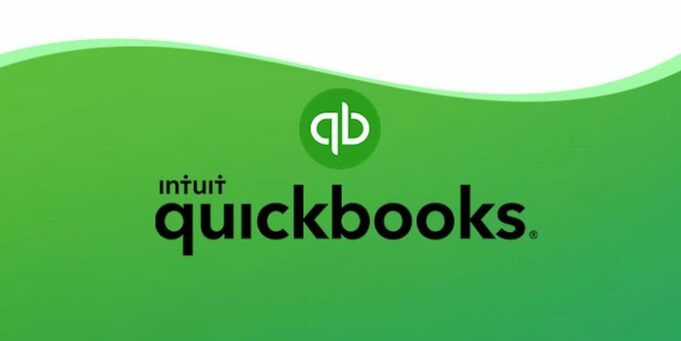QuickBooks is an accounting system trusted by thousands, and it could be the number-crunching sidekick you didn’t know you needed. How to use QuickBooks for HOA management… See this awesome article published by Condo Control Central!
Using QuickBooks specifically for HOAs
QuickBooks offers more than one product, so if you are considering the software to help you manage your properties, you will want to make sure you’ve selected the option that best aligns with your needs and requirements.
Automate payments for owners
Hate depositing cheques? So does everyone. QuickBooks eliminates the need for this by allowing owners to pay online. Once the owner enters their credit card information, they can take care of one-time and recurring payments. It’s easy to see if an owner has an outstanding balance, and you can follow up with that person if necessary. Billing information is stored securely, and transactions are often completed within one business day. This can be a huge time-saver if you are responsible for a large community.
Streamline payroll
QuickBooks has a payroll feature that gives management the ability to pay on-site staff, contractors, and any other people who perform services for the community, without having to triple check the numbers. You have the ability to set up multiple pay schedules and frequencies, and can distribute payments by cheque or through direct deposit. QuickBooks automatically calculates the taxes on each payroll run.
View all employees on the payroll from one page. You can even remove someone from a payroll schedule with one simple click. If you allow them to do so, employees can view their paystubs online.
Stay ahead of bills
Missing a payment can cost you more money. But, with an online accounting program, HOA managers and accounting admins can stay on top of due dates with confidence. Set automatic payment reminders for any bill, and sort bills by supplier, due date, location, or payment status to see what’s due and when.
Enter bills manually, or download transactions directly from the association’s bank account. If you decide to download transactions, QuickBooks will try to sort each expense by category and vendor. If the categorization is incorrect, it can be changed manually.
Bills can be paid for by cheque, debit card, or credit card. All payment records are securely stored in case you need to refer to them later on.
Know where the association’s money is going
QuickBooks has a feature that tracks the association’s income and expenses. This can help you maintain proper statements of income and expenses. You’ll be able to compare the HOA’s expenses and see if costs are over budget, or less than you anticipated to spend for the month.
Simply import transactions from the HOA bank account. Expenses can be categorized so that it’s easier for management or admins to isolate or track specific expenses. The easy-to-use dashboard will show you exactly what’s coming in and what’s going out.
When you understand how much the association is spending, and where the money is going, you can make better decisions about how much money can be devoted to maintenance and repairs, where spending could be curbed, and how much money needs to be in the association’s reserve fund. You can also run reports to compare income and expenses from one year to the next. Share access to your books with your accountant or admin team so they can see the bigger picture and help you stay on track.
Some associations require an annual audit to be performed. This isn’t a bad thing, and if your numbers are accurate, it can actually be quite helpful. Using QuickBooks, you can provide reports to a reliable CPA to perform an all-inclusive audit. This is another huge advantage to using an online accounting system.
QuickBooks is here to help you prepare for tax season, too. Imported transactions get automatically sorted into tax categories to maximize your deductions. Taxes are so much easier to file when all of the information you need is organized and up-to-date.
Accounting on the go
It’s always comforting to know that you can handle the unexpected if something comes up outside of working hours. The QuickBooks mobile app allows you to use your phone or tablet to enter expenses, send reports, and more, even if you’re not in front of your computer. QuickBooks’ cloud technology offers the convenience and security that every property manager will appreciate. Data will automatically sync in real-time, regardless of what device an update is made from. You can even take a picture of receipts or bills using your phone and upload them to the accounting program.
Combine QuickBooks with trusted property management software
Accounting is a vital part of managing an HOA. Keeping a record of the association’s cash flow provides you with a thorough understanding of where it stands financially. However, as we mentioned at the beginning of this article, accounting is only one part of HOA management. Fortunately, flexible property management software like Condo Control Central works perfectly with an accounting system like QuickBooks.
CCC’s integration with QuickBooks allows for two-way sync of data between the two systems. Contact information such as phone numbers, home addresses, and email addresses can be updated on one system, and changes will be reflected in the other. That literally cuts data entry in half. Not only does this integration make life easier for management, owners can view their personal account balances, or make a payment, directly from their CCC account.
Condo Control Central improves communication, assists with better record-keeping, and offers practical solutions for simplified HOA management. It has everything from violation tracking to announcements, to online voting. Together with QuickBooks, associations can finally have the tools they need to operate more efficiently and cut costs, too.
Conclusion
While accounting is a process that is largely invisible to much of an HOA community, it remains a fundamental pillar of success. QuickBooks is an accounting system trusted by thousands, and it could be the number-crunching sidekick you didn’t know you needed.











